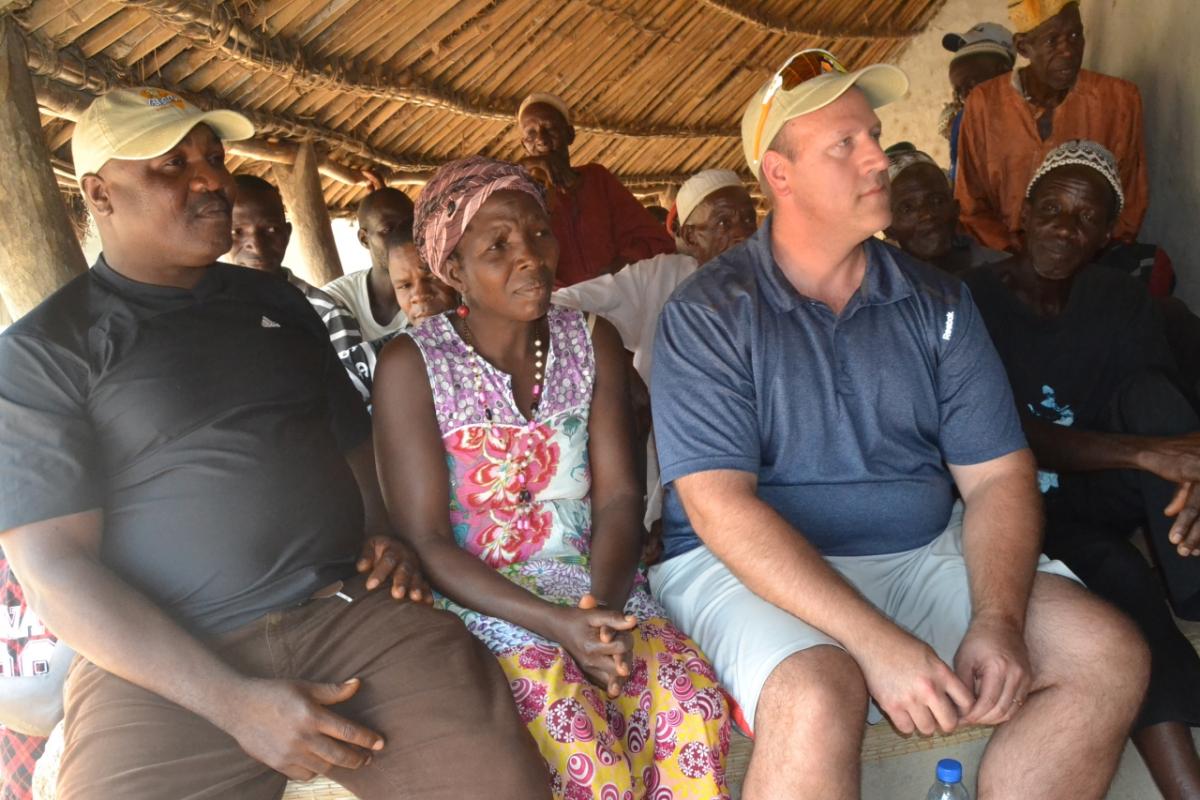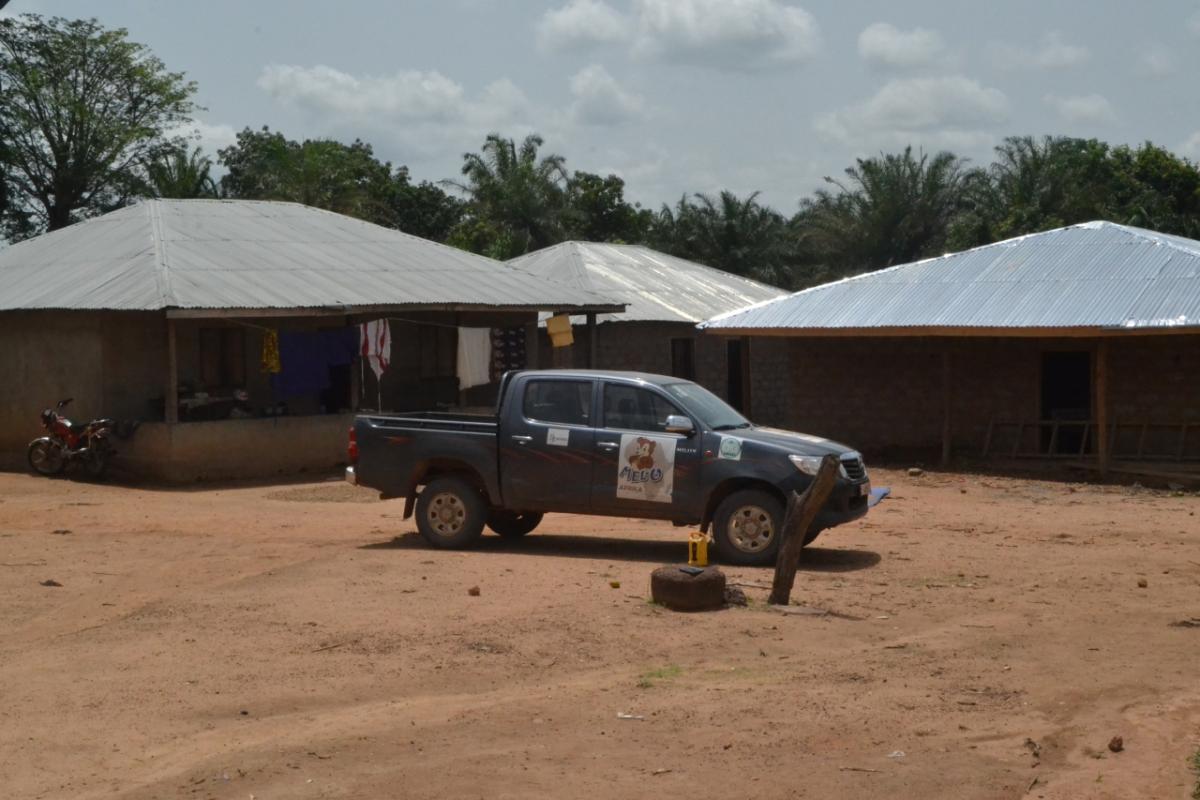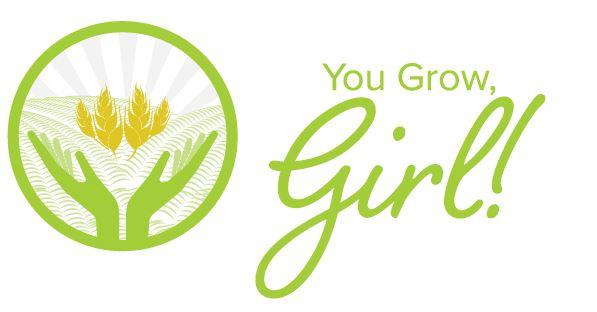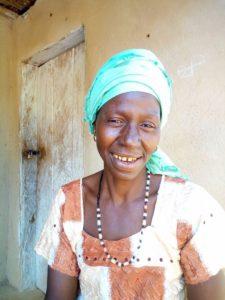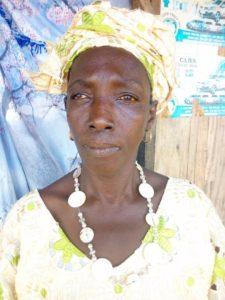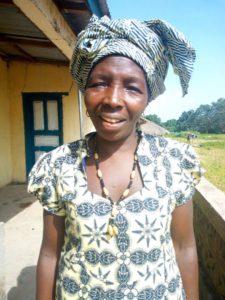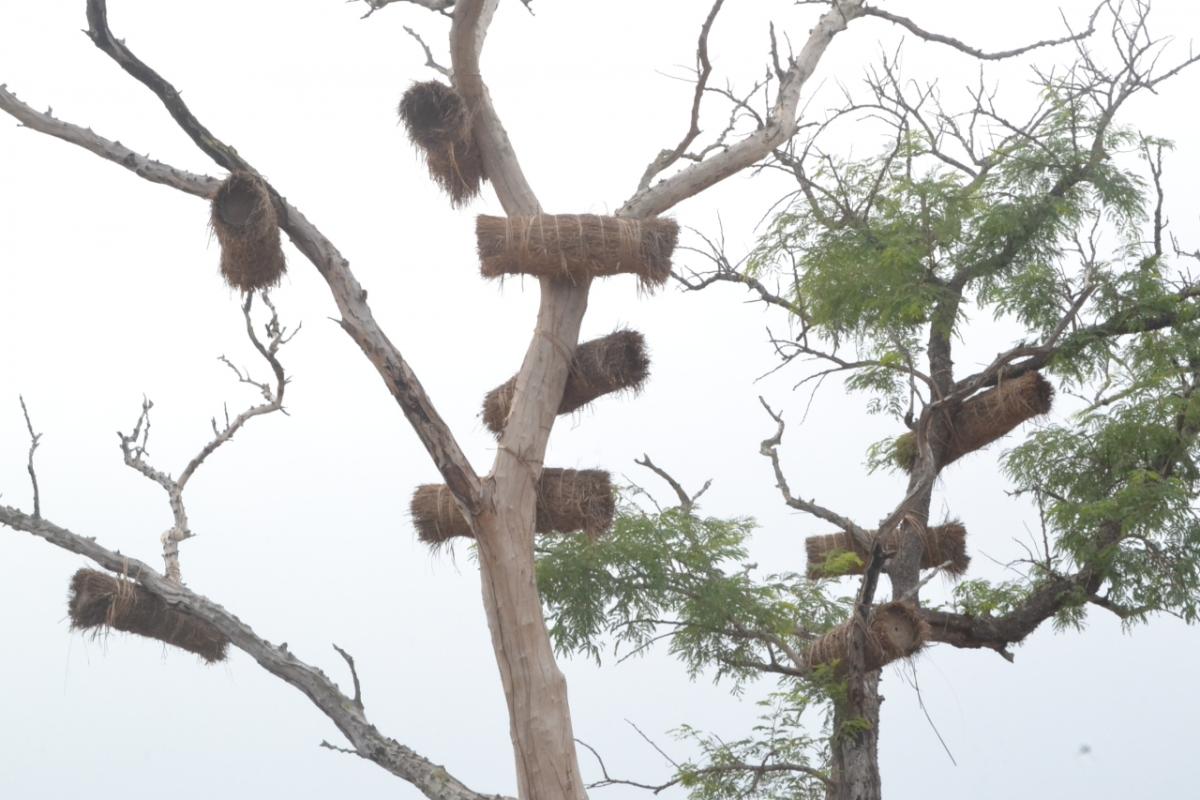The Power of Bee Farming for African Women
The power of bee farming for African women
To say that producing honey has changed the lives of female farmers, particularly in the West African country of Sierra Leone, would be an incredible understatement.
We talked to three women who, through the profits from their beekeeping and honey crop, educate their children, provide stable income for their families and are unburdened with farm loans.
A local interpreter asked the same question of each farmer: How has bee farming changed your livelihood and agriculture practices?
The stories they shared are enlightening and inspiring. Through our investment in these farmers, their honey harvest and their communities, we hope they continue to thrive and flourish – just as their bee colonies do.
Dusuba Sesay – Sulama Chiefdom, Chairlady for bee farmers in the town of Gberial Timbakoh
Before bee farming, Dusuba’s income came from farming rice, pepper and ground nuts. Each season, she borrowed money from family or community members to finance her farming activities. Leftover produce was kept for family use or sold. After repaying the loan, rarely was there much profit to carry them to the next planting season.
Dusuba: When Mel-O Africa, the company that buys honey, came to Sierra Leone, there were many positive changes in our lives.
Our farm has increased in size and our harvests have also increased. With our honey profits, we can afford to pay other people to help us to work on the farm, and now thanks to God and the company, we are farming much easier. Our hardship has been reduced and we no longer take out loans to support our farming.
We now have a house with many rooms, livestock and can send our children to school (which costs $90 per year). Things are better and we have a strong source of income.
Since 2013, General Mills has partnered with Sweet Harvest and Mel-O Africa to develop a market for honey from the region. It’s here that we source a portion of our honey for products like Nature Valley Oats & Honey bars, Honey Nut Cheerios and Honey Kix.
Our demand assures they will have fair pricing. But there’s more. Sweet Harvest and Mel-O Africa not only provide a market, they train and support those who want to become beekeepers.
Yanyi Samura – Sulama Chiefdom, in the town of Gberial Timbakoh
Prior to bee farming, Yanyi and her family were swamp and pepper farmers. They received seed loans from community members and borrowed to sustain the family until they could repay the loan after harvest. Some of the produce was taken to the weekly market and sold to provide clothes for the family, but things were very difficult and they were not able to send all their children to school.
Yanyi: We used to find honey for our own use. But after we were introduced to bee farming, things became better for us. Now, we can make money from bee farming, which has changed the way we farm, and we are able to pay people to work for us. So, the hard work has been greatly reduced.
I recently started a small business where I trade goods, which is more suitable than farming because I have an eye condition. I used the money from our honey business to start my trading, and my husband invested in a rice mill and motor bike. The rice mill is providing additional income for our family, too.
We now live in a five-bedroom building and have livestock such as cows, sheep and goats. Our young children are going to school because we now have funds to support them and there is never a shortage of food.
Things are much better than before and we have another way to make money that doesn’t disturb our farming because we do the swamp and bee farming together.
Tenne Sesay – Debelia Sinkunia Chiefdom, Town of Talaia
Before bee farming, Tenne and her family farmed rice and peppers. Their income supported only basic needs. They took out loans, repaying them with interest at harvest and living with little or no savings. She has eight children, and the older ones did not attend school. Her sons help on the farm, but her daughter married at a young age, which is a culturally acceptable solution for girls who cannot attend school or learn a trade.
Tenne: We learned how to bee farm when Mel-O Africa came to Sierra Leone. It was the turning point in our lives. We began to get income faster than we did from other farming, but the bee farming is not disturbing our other farming activities. We no longer take out loans to support our farming and we can pay people to help us work on our farms. Therefore, we have increased our farm size and our harvest.
Because we have extra income from honey, we now buy livestock. We have four cows, eight sheep and six goats. This is a great relief for us because our livestock is our bank account. Any time we want, we can sell them and get money, unlike farming, which is by season.
We now have a four-bedroom house and my son has a motor bike, which has reduced transportation problems for me. Our lives have improved, we are farming easily, production has increased and our younger children are going to school.
Read other You Grow, Girl! blog posts and learn more about General Mills and our commitment to sustainable sourcing and supporting smallholder farmers in our 2017 Global Responsibility Report.
Have an idea for a story you’d like to see on “A Taste of General Mills”? Please let us know via email at contact.blog@genmills.com. Subscribe to “A Taste of General Mills” by email – here – and we’ll notify you about our latest posts.

